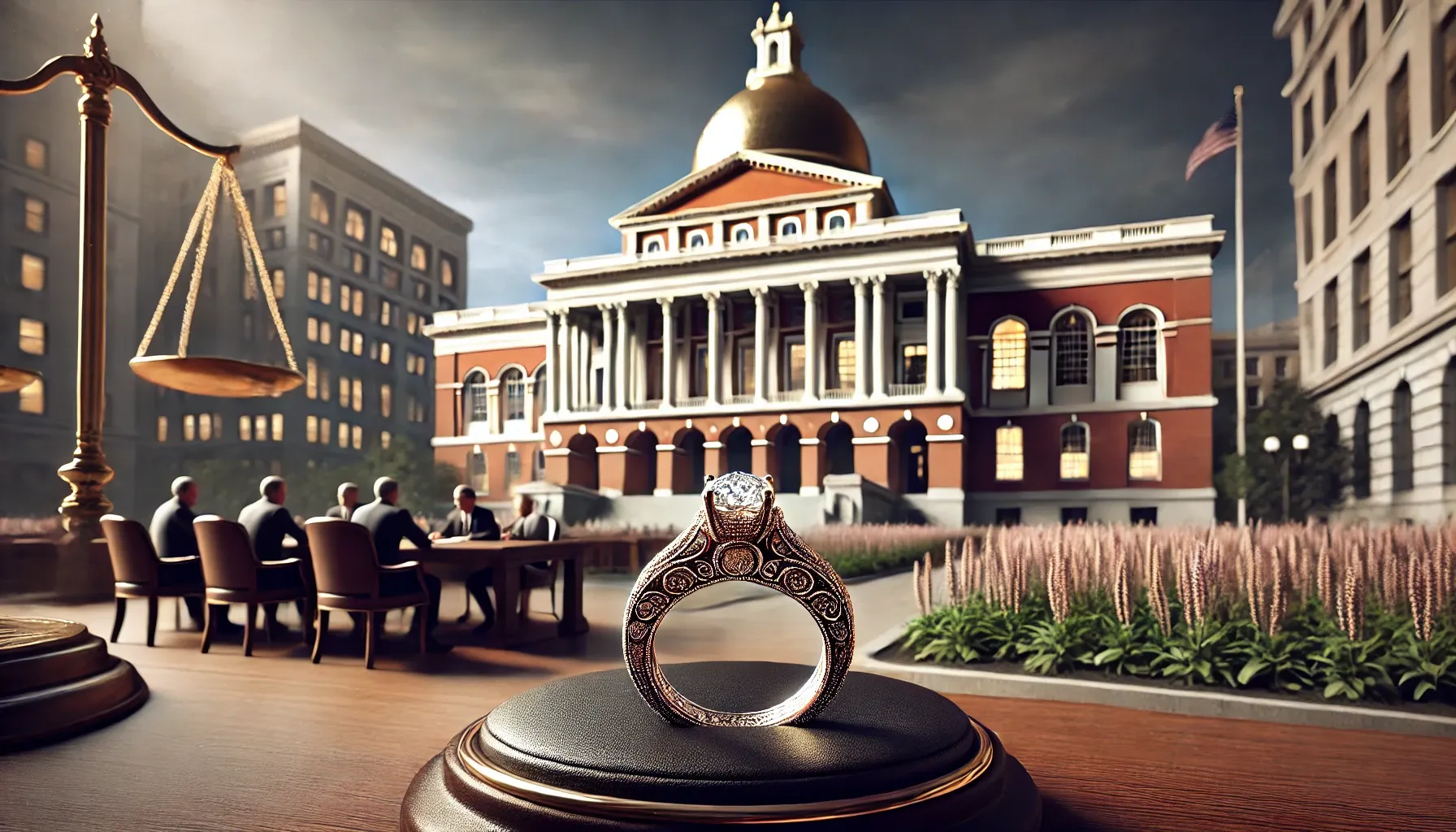The Massachusetts Supreme Court ruled that engagement rings must be returned if weddings are canceled, regardless of fault, ending a 60-year rule requiring judges to assess blame for failed engagements.

In a landmark decision, the Massachusetts Supreme Judicial Court ruled that engagement rings must be returned to the person who purchased them if an engagement is called off, regardless of who ended the relationship or why. This judgment overturns a six-decade-old rule requiring judges to determine who was at fault when the wedding was canceled.
Background of the Case
- Case Details: The case involved Bruce Johnson, who bought a $70,000 diamond ring for Caroline Settino. After dating since 2016, Johnson proposed in 2017, but their relationship later deteriorated. Johnson alleged Settino became unsupportive, particularly after his cancer diagnosis.
- Disputed Communications: Johnson discovered text messages and a voicemail from another man, suggesting an intimate relationship, though Settino claimed he was only a friend.
- Initial Rulings: A trial judge initially awarded the ring to Settino, concluding Johnson had misunderstood her interactions. However, an appeals court reversed this decision, prompting a final review by the Supreme Judicial Court.
The Court’s Ruling
- No More Fault-Based Rule: The court ruled that fault should no longer be considered when deciding who keeps the ring if an engagement ends. The justices stated, “We now join the modern trend...and retire the concept of fault in this context.” Moving forward, the ring must be returned to the person who purchased it.
- Justification: Citing prevailing practices in most U.S. states, the court determined an engagement ring is a “conditional gift” tied to marriage. If the marriage does not occur, the gift condition is unmet, and thus the ring should be returned.
Legal Community’s Response
- Plaintiff's Counsel: Johnson’s attorney, Stephanie Taverna Siden, praised the ruling as “well-reasoned, fair, and just.”
- Defendant’s Position: Settino’s lawyer, Nicholas Rosenberg, expressed disappointment, arguing the concept of a conditional gift for an engagement ring is outdated and should be abolished.
- Academic Perspective: Harvard Law School Professor Rebecca Tushnet, an expert on engagement ring law, was not surprised by the decision to reject the fault-based approach but wished for consideration of allowing the ring to stay with the recipient, as with other gifts.
Key Points from the Ruling
- Conditional Nature: Engagement rings are legally conditional gifts. As a rule, if the wedding does not occur, the ring must be returned to the giver.
- Modern Family Law: The court noted that a fault-based rule for engagement rings is outdated and inconsistent with contemporary family law principles.
Source: 11alive





